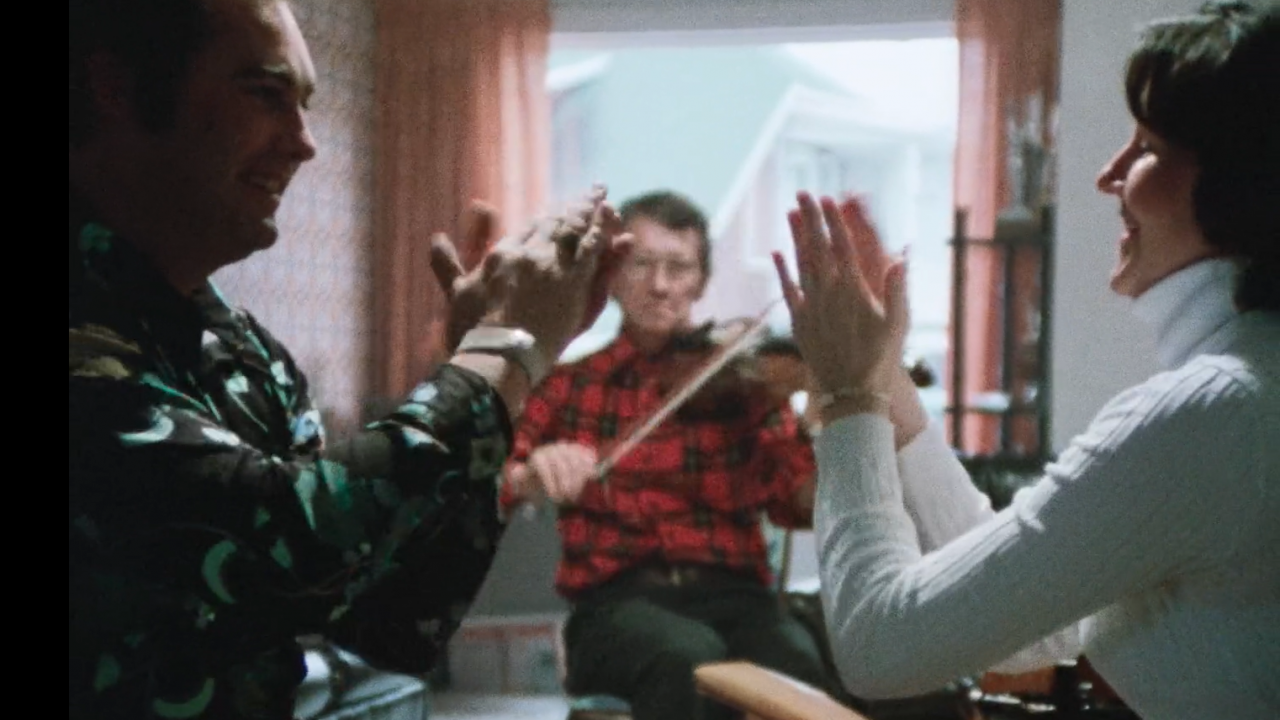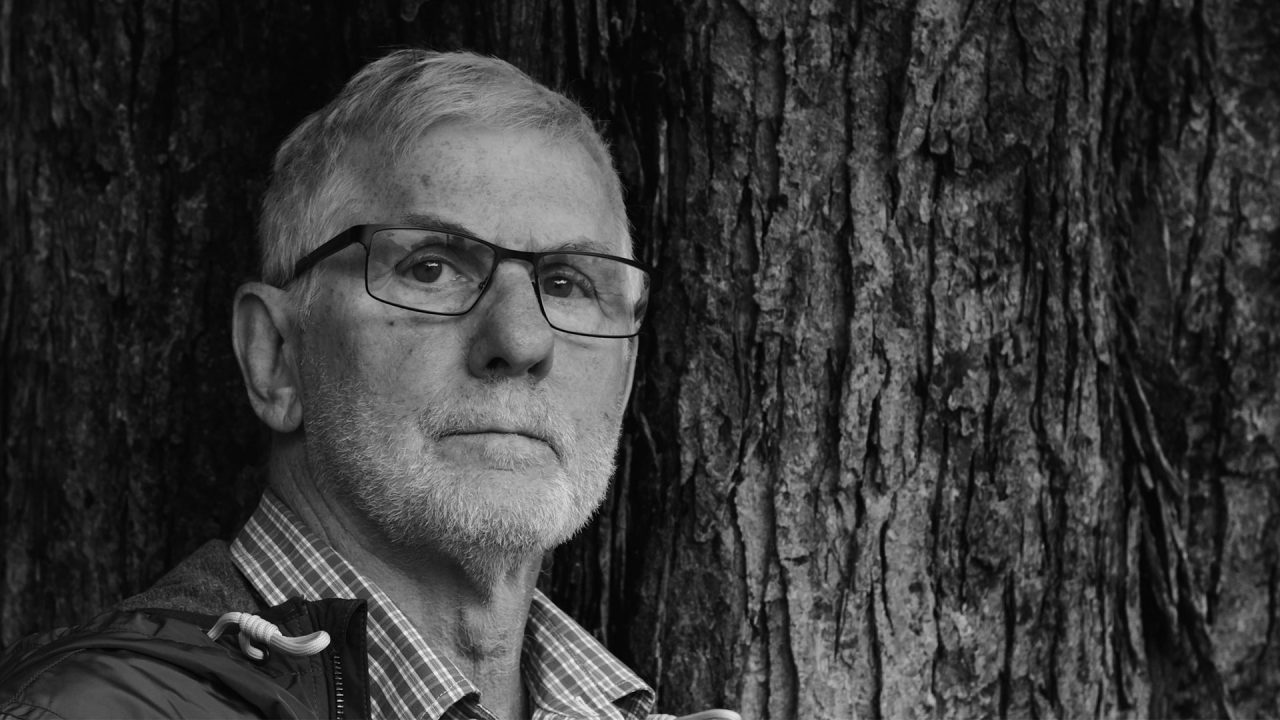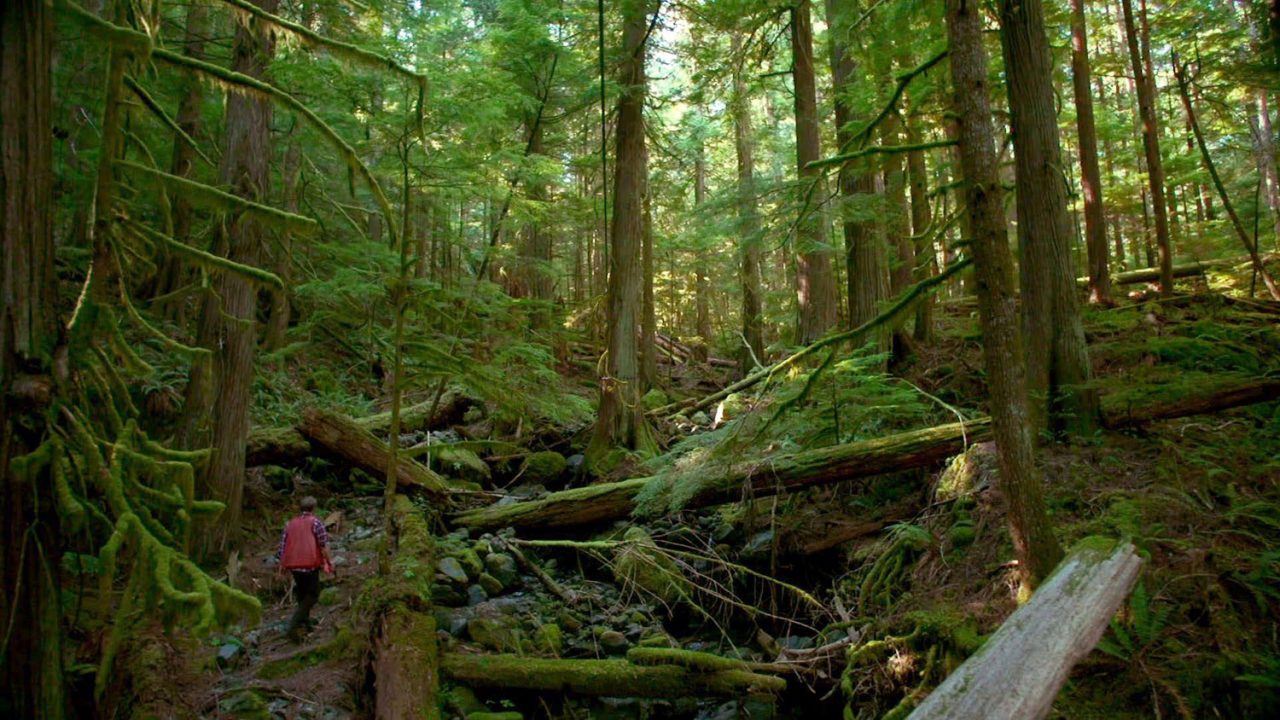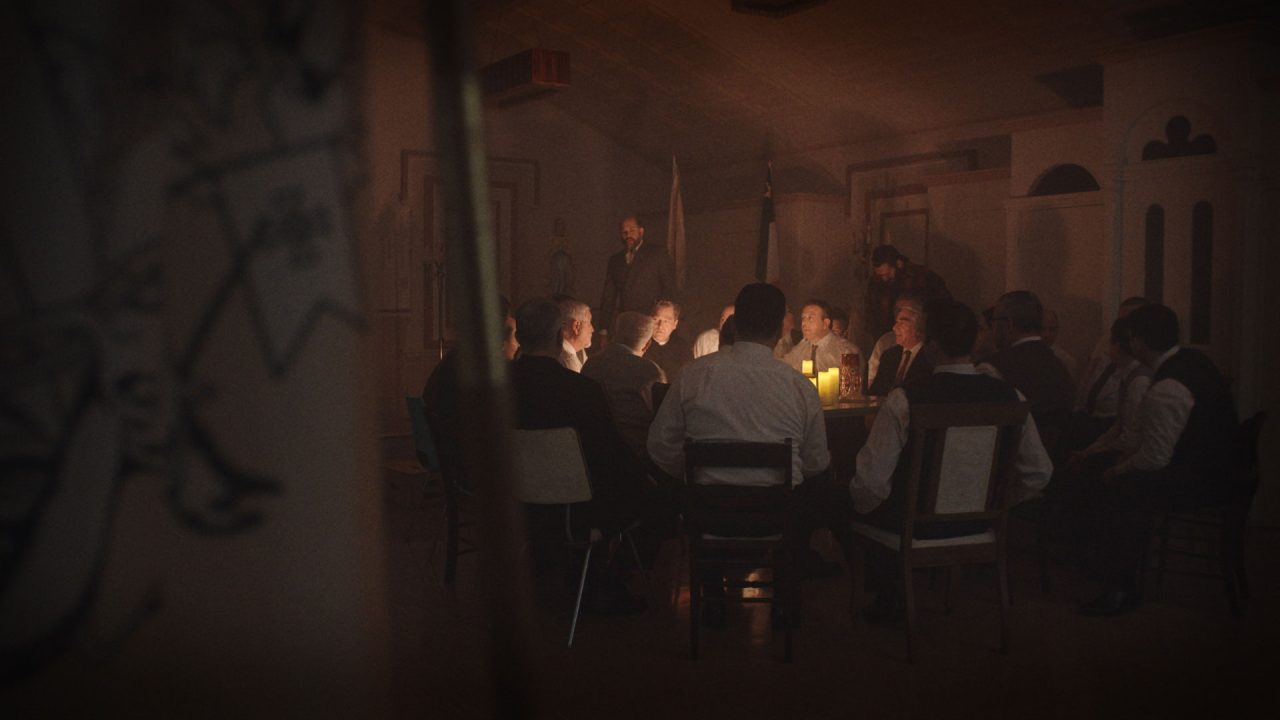
Higher Learning | The Secret Order
Higher Learning | The Secret Order
The Ordre de Jacques-Cartier: A Family Secret, an Underground Organization in Acadie
The Secret Order, a documentary by Acadian filmmaker Phil Comeau, immerses us in a story that intertwines family memories with a little-known piece of Acadian history. Within the first few minutes, we’re captivated by the very personal search for truth that motivates the filmmaker. It was only on his deathbed that Phil Comeau’s father revealed a lifelong secret: that he had belonged to a secret society.
The Secret Order, Phil Comeau, provided by the National Film Board of Canada
A secret society?
A son’s curiosity about the hidden side of his father’s life is the connecting thread throughout the film. Phil Comeau invites us to join him as he explores the world of the Ordre de Jacques-Cartier, a Catholic French-language secret society known familiarly as as “la Patente.” Taking the form of a reflexive or participatory documentary, The Secret Order shows us the filmmaker’s journey, as he visits archives and speaks with former members of the Order, without losing sight of his overall subjective relationship with this topic. It’s important to note that while it skilfully incorporates information that allows us to understand the history of the Order, the film particularly focusses on the organization’s role in Acadie. This is because the filmmaker’s interest lies largely in following the journey of his father, who was a member of a cell in the St. Mary’s Bay region of Nova Scotia.
Intrigue and investigation
The Secret Order engages its viewers through the right balance of intrigue and investigation while shining a spotlight on its sources, which, in my opinion, is where the real richness of this documentary lies. Interviews with former members of the order are supplemented by scenes the director shot during research trips, notably to the Centre de recherche sur les francophonies canadiennes (CRCCF) at the University of Ottawa and the Centre d’études acadiennes Anselme-Chiasson at Université de Moncton. The use of archival materials is also striking. These include excerpts from documentary films, printed documents and audio recordings from family archives. In addition, dramatic re-enactments of historical events allow us to explore some of what the members of “la Patente” experienced.
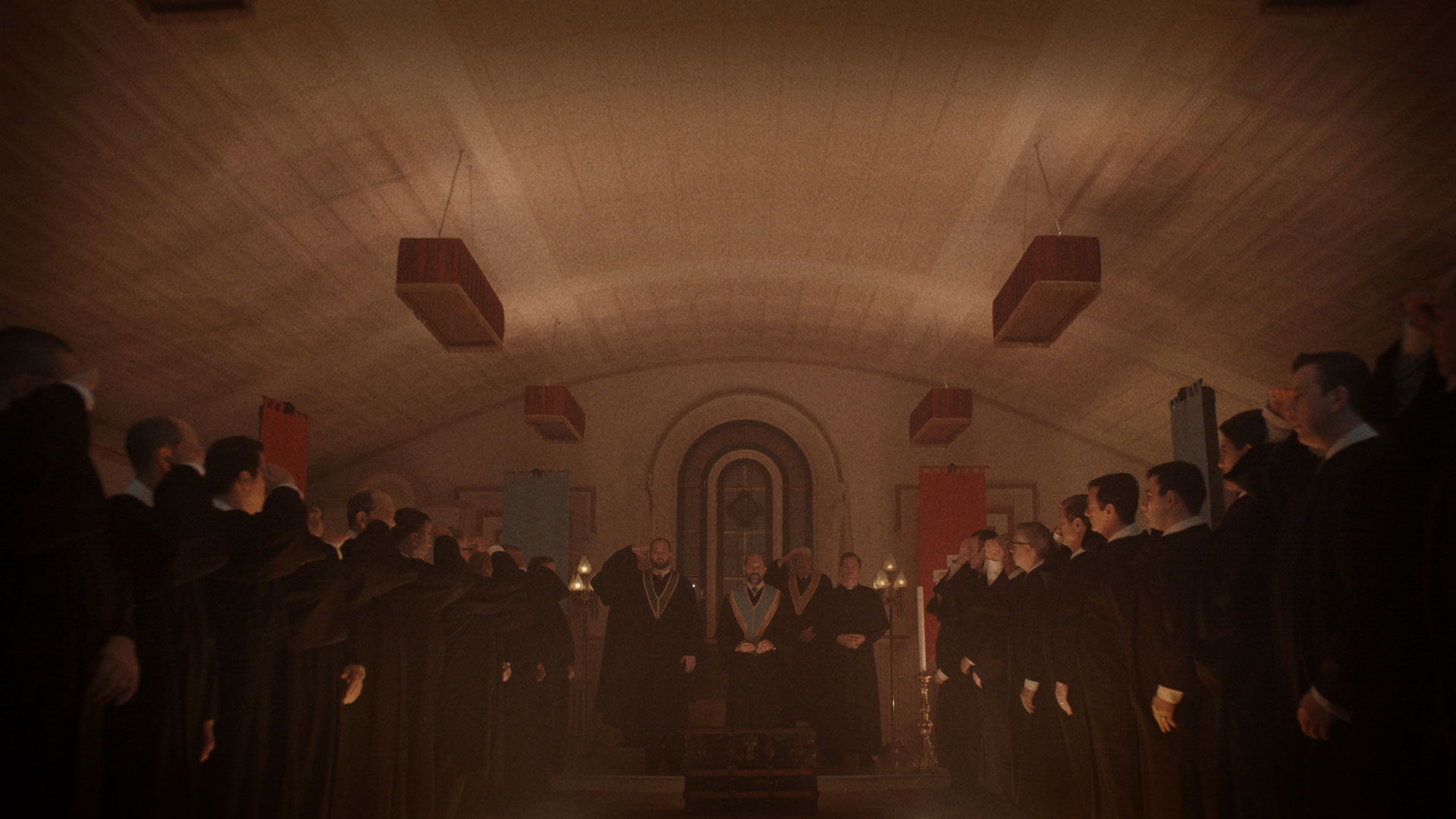
Among the many powerful moments in this documentary, the reconstruction of the Ordre de Jacques-Cartier’s initiation ceremony stands out. It’s one of the film’s central elements and, from an educational perspective, no explanatory text could compete with it. These meticulously designed scenes appear throughout the documentary. Lived experiences are brought to life by blending live action with animation, along with the imagery-filled descriptions that accompany the ritual. Some of the ritual’s details are also echoed in interviews with participants. As a historian and a professor, I find the use of historical reconstruction here relevant. While it’s important to approach re-enactments with a critical eye, the ones in this film are based on exhaustive research and depict an important part of the historical record.
Pedagogical thoughts
The Secret Order can easily be incorporated into a number of different university courses, in particular courses on Acadian history or ones that touch on francophone history and culture in Canada. The richness of this documentary is the result of rigorous research combined with the filmmaker’s creative choices—in particular, the historical reconstructions. Furthermore, as we accompany Comeau on his visits to museums and archives, the film can serve as a concrete example of what historical research entails, whether document-based research or oral investigations. The Secret Order touches on a number of other subjects as well, including the role of the Catholic Church in Acadian and Canadian francophone communities, the mores of the day with respect to women, and the relationship between French speakers and English speakers. The documentary also brings to light the contributions some Acadians made to the Order, in particular at its founding, and the role the secret society played in the lives of well-known Acadians like the politician Louis Robichaud.
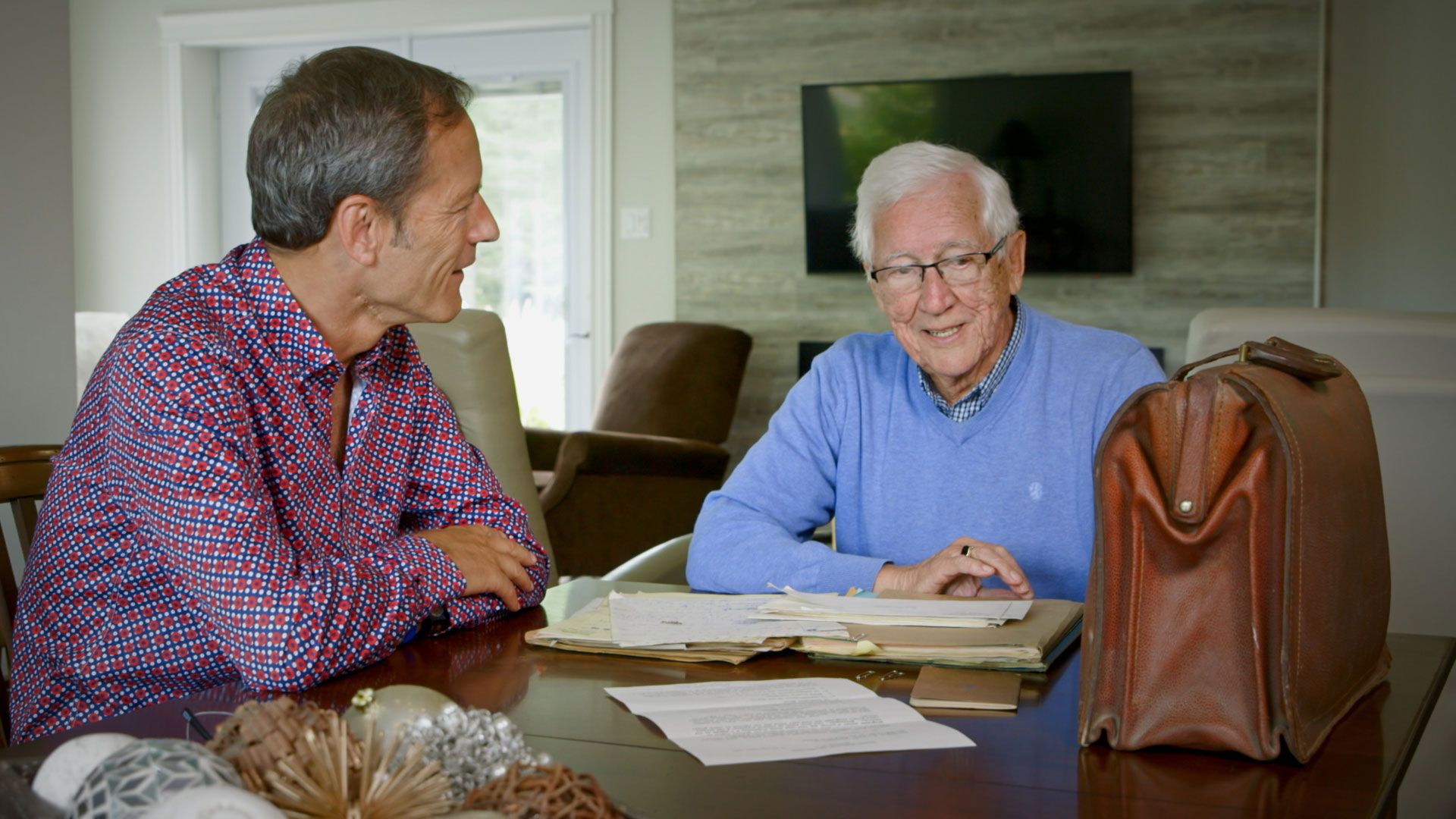
Although the documentary follows the filmmaker’s personal quest to understand a particular side of his father’s life, Comeau’s approach also serves as a window onto a complex world we’re invited to learn about. This may be socially and politically engaged—or even radical—subject matter, but the way the Order and its actions are presented is nuanced. The film looks at the experiences of women, who were generally not taken into consideration by the Order, as well as the darker sides of the secret society, as related in interviews with people who were opposed to it in the 1960s. The filmmaker also highlights the contrast between the Order’s demands and relatively discreet actions and the public activism of Acadians in New Brunswick in the 1970s.
A fascinating film that can be enjoyed by a wide range of audiences, The Secret Order is sure to spark discussion and dialogue. The documentary skilfully presents the history and goals of the Ordre de Jacques-Cartier, situating them within francophone—and, more specifically, Acadian—Canada.
For more information: Marc-André Gagnon, “Ordre de Jacques-Cartier,” The Canadian Encyclopedia, Historica Canada, 2016. https://www.thecanadianencyclopedia.ca/en/article/ordre-de-jacques-cartier
Stéphanie St-Pierre is an Assistant Professor at Université Sainte-Anne, in the Acadian region of St. Mary’s Bay, Nova Scotia. She holds a Ph.D. in History from Université de Montréal, and her research focusses on the Canadian Francophonie, intellectual history and historical production in a francophone minority-language context.
Pour lire cet article en français, cliquez ici.
Discover more Educational blog posts | Watch educational films on NFB Education | Watch educational playlists on NFB Education | Follow NFB Education on Facebook | Follow NFB Education on Pinterest | Subscribe to the NFB Education Newsletter

